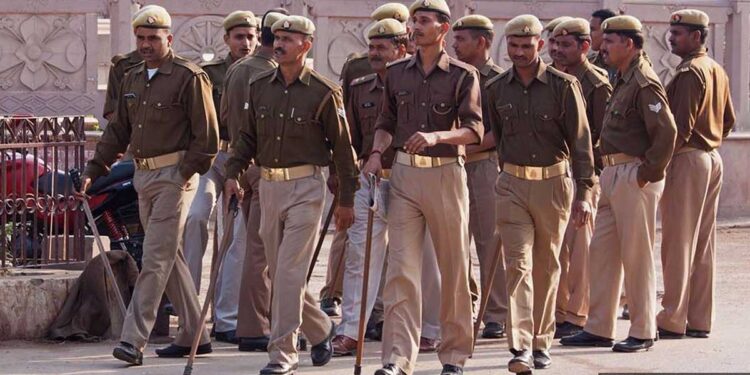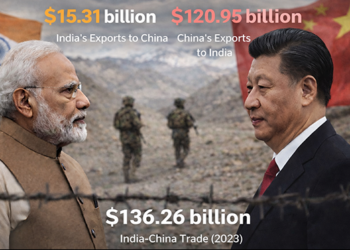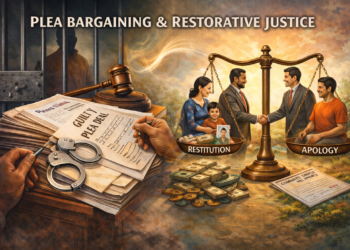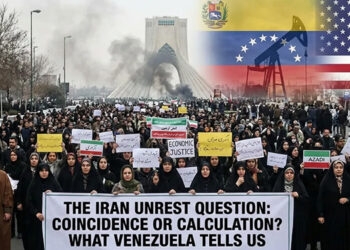Recently the Supreme Court of India pulled up the police for the arrest of Kerala journalist Siddique Kappan while granting him bail. Questioning the police claim that the literature meant to incite riots had been seized from the vehicle in which he was travelling – when he and three others were held in Mathura on October 5, 2020, while heading to the Hathras home of a young Dalit woman who died after an alleged gang rape- the Chief Justice said, “Every person has a right to free expression. He tries to show that the victim needs justice and raises a familiar voice. Will this be a crime in the eyes of the law?”
There is nothing new in these observations of the Supreme Court on the police. This keeps happening regularly, and police keep being pulled up by the highest court and the courts lower than it. But is there any improvement in the situation?
Ask the political parties their views on this matter. Those not ruling in the state and belonging to the opposition have blamed the Chief Minister of the state because the police work under him for his alleged religious bias and asked ‘his’ police to take this action. Of course, criticism or
praise in such matters depends on who is in power and who is not at the time of the incident.
Then ask the activists of various shades and their reaction depends on the lenses that they are wearing. Same with the views of religious leaders of different faiths. And then comes the common man – you and me – and the poor and the deprived, the Dalits, the women, the infirm, the disadvantaged on different counts, which is a long list who are critical and helpless about the police functioning always and blame the politicians also irrespective of their colours.
The police in India, thus, keep on getting flak regularly from all quarters. And ask the police why they behave the way they do; they blame all the political parties across the board and in the states because constitutionally, the politicians control the state police forces and, therefore, behave like private armies of the states.
And now, it is like many kingdoms in India in pre-independence days. The state police forces not only do not cooperate but are hostile to each other, even to the extent of illegally confining the police force of another state or an investigating agency of the centre. A few examples are Maharashtra, Delhi – Haryana- Punjab and West Bengal in Kolkata. And when fighting serious national security issues, it’s like 36 independent Generals, the Directors General of Police, of the states and union territories of India going to fight a common war but with independent strategies without any coordination. How can you win? We have many lingering internal security problems in the country – just one example of the Maoist violence in many states will suffice. What can be more distressing?
Where are we heading to? Almost chaos? And why? Nobody is interested in asking or answering this question and taking remedial measures about the police functioning. It has problems with its legal status, administrative issues and adverse effects on it of the functioning of other components of the criminal justice system like judiciary and prisons.
Legally it continues to be under the control of the state politicians- policing being a state subject, and the law says that the police are answerable to the state, i.e. state government, and that means
the Chief Minister and his cabinet, which in turn points to the ruling political party which keep on changing in a democracy and each party has its agenda but wants control of the police to meet their personal and political agenda – and has become almost a private army of the
politicians in power. It looks funny that in Maharashtra, for example, now – just one case to prove the point – those who were getting the opposition guys arrested the other day are now being arrested themselves with the change in the government with the police remaining the same! But
it’s common in the country.
Ask the police officers why they behave the way they do, with, of course, many honourable exceptions, and they say that their careers are in the hands of the politicians. So rather than obeying the law, they follow them and even join hands in the spoils- this being a win-win formula.
Who suffers is not their concern. Here the police have also failed, and leadership has to take the blame to some extent. Injustice, corruption, torture etc., continue to be the general hallmark of
the police.
It has many administrative problems like less sanctioned strength than required with the increase in population and hence crime, implementation of a plethora of new laws in which police have nothing to do but yet made responsible – even against the current strength, there are about 5 lakh vacancies, transport, communication, cyber experts, intelligence, training, forensic support etc. They do many other non-police duties like prison duties and taking prisoners to courts, delivery of court summons etc. And, of course, looking for the lost buffaloes of the most senior politicians/ministers on priority!
And then the police are blamed for the poor functioning of the judiciary and prisons. About three crore cases, including lakhs of criminal cases, according to one estimate, are pending in the courts of India, but many will blame only the police for the delay, though their duty ends once the case is charge sheeted. In prisons, thousands of undertrials are languishing, including those who have already served a term longer than the jail prescribed for the offence for which they were caught and for many other simple offences. Even though bail and not jail are the law, the practice is the other way around.
So we come back to the question as to why nobody is interested in asking or answering this question and taking remedial measures about the police functioning. We only keep on repeating the police failure all the time. The simple answer is nobody is interested. In a democracy, the politicians decide these matters by enacting laws and reforms. But in our country, they are turning a blind eye to police reforms despite the orders of the Supreme Court way back in 2006. We are still the colonial police. Administratively they give no resources to the police citing a lack of funds though they will find the money for various non-productive works. And there is a bleak chance of the judiciary and prisons being fixed as of now – again, for which the politicians have to play a significant role.
So broadly speaking, if the Captain of the Ship has decided to sink the ship, nobody can help. Meanwhile, the country and the common man will continue to suffer. There can’t be real economic or other progress unless these two prosper, but at present, there’s little scope for that. A pessimistic view. Yes. But tell me the alternative.








